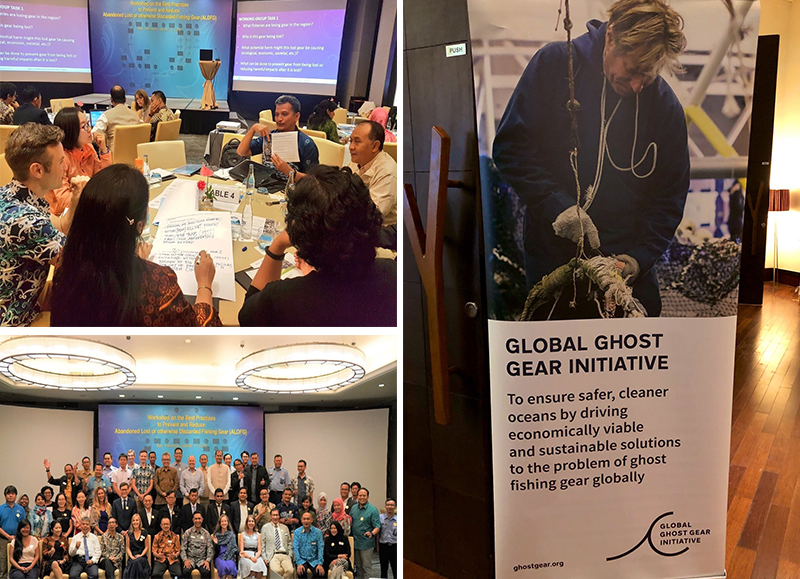Abandoned, lost or otherwise discarded fishing gear can continue to capture and kill marine animals and may cause navigational hazards – as well as contributing to the global marine litter problem. IMO is working closely with the Food and Agriculture Organization (FAO) on reducing marine plastic litter from fishing vessels, including fishing gear, as part of the IMO Action Plan on the Reduction of Marine Plastic Litter. This collaboration includes IMO participation at a series of regional FAO-led workshops on best practices to prevent and reduce abandoned, lost or otherwise discarded fishing gear.
Participants at the second regional workshop, in Bali, Indonesia (8-11 July), discussed the usefulness of developing a practical guide on the application of IMO's MARPOL Annex V for small fishing vessels and fisheries ports. This could help to promote port reception facilities for the delivery of fishing nets, the application of garbage management plans on small fishing ships and the use of reporting mechanisms for lost fishing gear. IMO addresses marine plastic litter in the oceans through both MARPOL Annex V (which prohibits the discharge of plastics into the sea from all vessels) and through the London Convention/London Protocol regime, which ensures that plastics do not enter the sea as part of any wastes allowed for dumping at sea.
The regional workshop, like the others in the series, focused largely on the practical application of the recommendations contained in the FAO's Voluntary Guidelines on the Marking of Fishing Gear (VGMFG)) in the countries of the region. Another opportunity to discuss the implementation of the FAO Voluntary Guidelines for the Marking of Fishing Gear will be during the 4th session of the Joint FAO/ILO/IMO Working Group on Illegal, Unreported and Unregulated (IUU) Fishing and Related Matters, to take place 21-23 October, in Torremolinos, Spain from following the IMO-Government of Spain Ministerial Conference on fishing vessel safety and IUU fishing (21-23 October
The workshop was organized jointly by FAO and the Global Ghost Gear Initiative (GGGI). Participants represented Cambodia, China, India, Indonesia, Malaysia, Myanmar, Philippines, Sri Lanka, Thailand and Timor Leste, from national and regional authorities responsible for fisheries, and from ministries of transport and foreign affairs.
